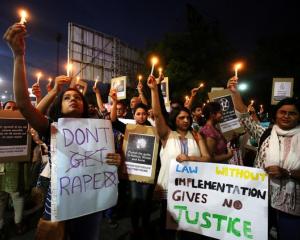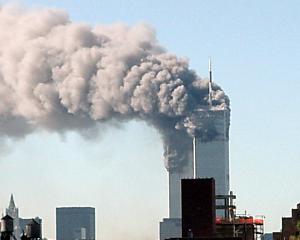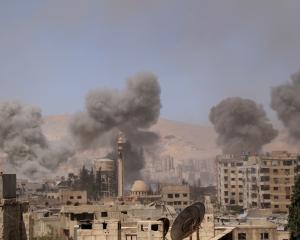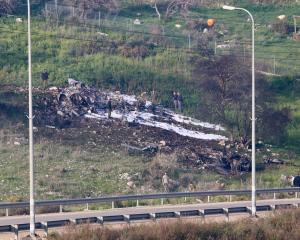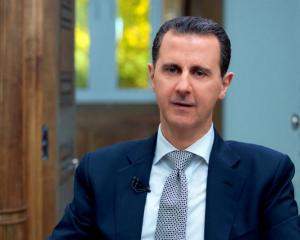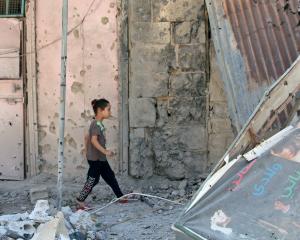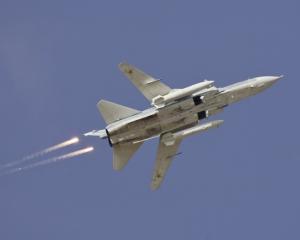A new year has sadly brought no hope for any end to the blood-letting in Syria. The death toll in the embattled country now exceeds 60,000, according to the United Nations, and hundreds are often killed in a single day.
UN-Arab League envoy Lakhdar Brahimi has warned a further 100,000 could die this year. The humanitarian situation is dire in Syria but also deeply concerning in surrounding countries such as Turkey, Lebanon, Jordan, Iraq and Egypt, where UN figures
now show more than half a million refugees have fled. The Arab League was due to hold an emergency meeting in Cairo late last night New Zealand time to address the problem in Lebanon, home to more than 185,000 Syrian refugees.
Tragically, it appears Mr Brahimi's prediction of the death toll is likely to be a far more realistic assessment for the future than the claims at the beginning of the uprising against President Bashar al-Assad in March 2011.
At that time, there was the expectation the conflict would go the same way as many of the 2011 ''Arab Spring'' revolts elsewhere which were violent but brief and in some cases brought about democratic change with the ousting of dictators in Tunisia (Zine El Abidine Ben Ali), Egypt (Hosni Mubarak) and Libya (Muammar Gaddafi, who was later killed).
While the initial results of the uprisings in some countries may have been short-lived, and the situation in many remains volatile, it is the situation in Syria that still dominates the headlines. The despair of innocent children, women and elderly caught in the crossfire between Mr Assad's forces and the Free Syrian Army in the ongoing conflict is evident.
Most heartbreaking seems to be the powerlessness and/or unwillingness of the outside world to stop it. The peace efforts of Mr Brahimi and his predecessor Kofi Annan have proved futile, Russia, China and Iran back Mr Assad, the West and most Arab states would like to see an end to the violence but are not prepared to intervene, the opposition National Coalition will not hold talks with Mr Assad, who in his first public speech in six months last week defiantly rejected any peace talks with those he deemed extremists and terrorists and ''gangs recruited abroad that follow the orders of foreigners'', and rallied Syrians for ''a war to defend the nation''.
The future looks bleak and is a far cry from the optimism of last July, when a bomb attack killed four of Mr Assad's key military advisers and was hailed by some as the turning point in the then 16-month uprising. Syrian rebel commander Abdullah al-Shami said then the deaths marked a ''qualitative shift'' and he expected ''a speedy collapse of the regime''.
Of increasing concern also is the threat of chemical weapons, with claims at the end of last month the Assad regime was mixing them for use and a reportedly dramatic response from the US, Russia and other Arab states which halted their preparation.
But there have also been claims that some sort of gas has been used by government troops against rebels in Homs - and also that rebels have used chemical weapons against the army in Daraya. The truth is hard to verify as the Syrian Government has barred most foreign media coverage of the conflict and many journalists are smuggled in illegally and at great risk.
The US has said the use of chemical weapons would constitute a ''red line'' that Syria must not breach, but given the Assad regime's already extreme use of firepower and the ever-increasing toll on the ground, it remains unclear whether their use would in fact spur any decisive action.
The legacy of the West's invasions of Afghanistan and Iraq has been a diminishing appetite for sending troops to war on foreign soil, and fear intervention could escalate regional conflict, and even global unrest, as long as international heavyweights like Russia and China continue to support the Assad regime.
But as US President Barack Obama said of Syria in July: ''The world is watching.''
But quite how long it will continue to turn a blind eye to the slaughter on the ground remains anyone's guess.



